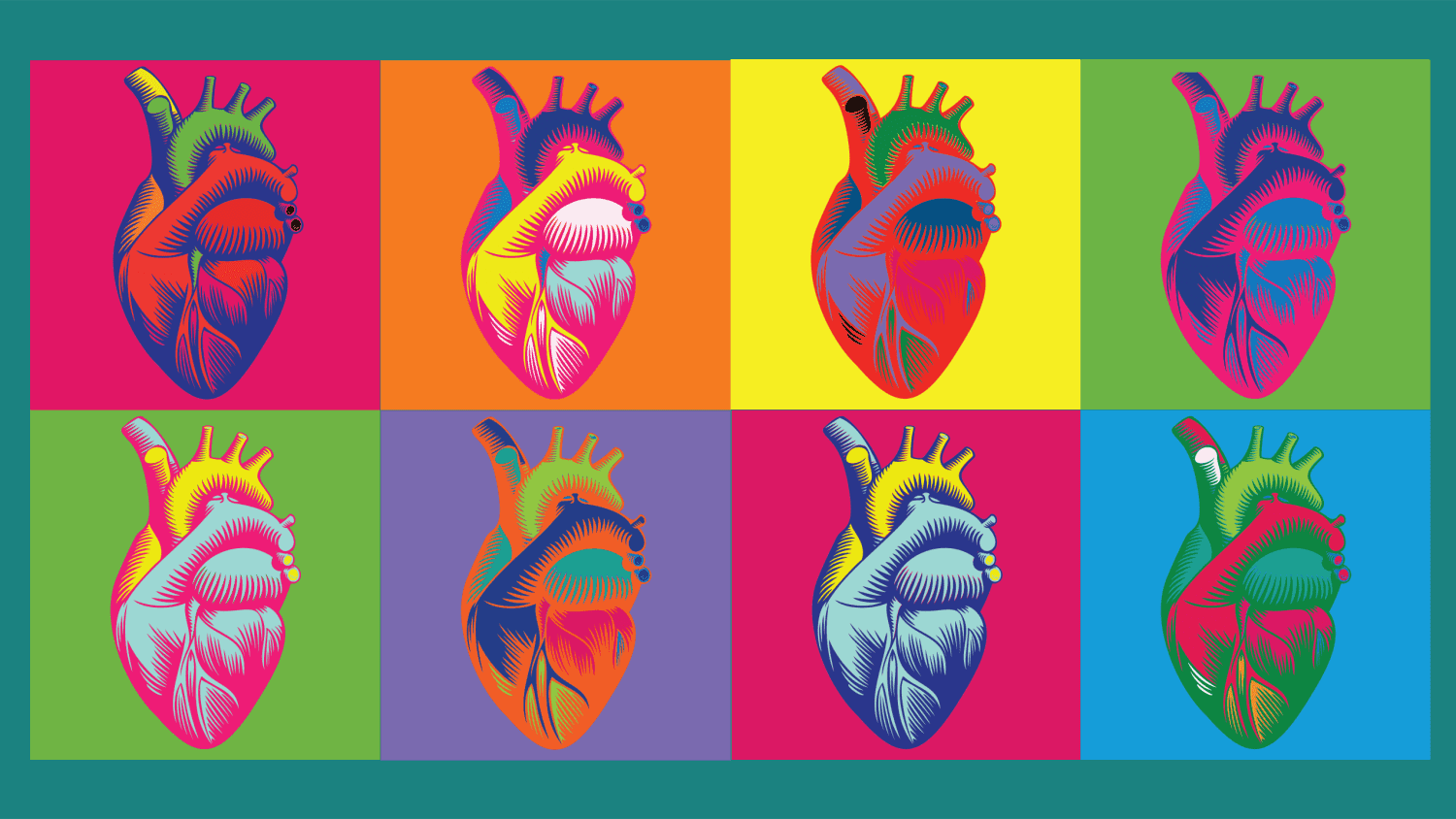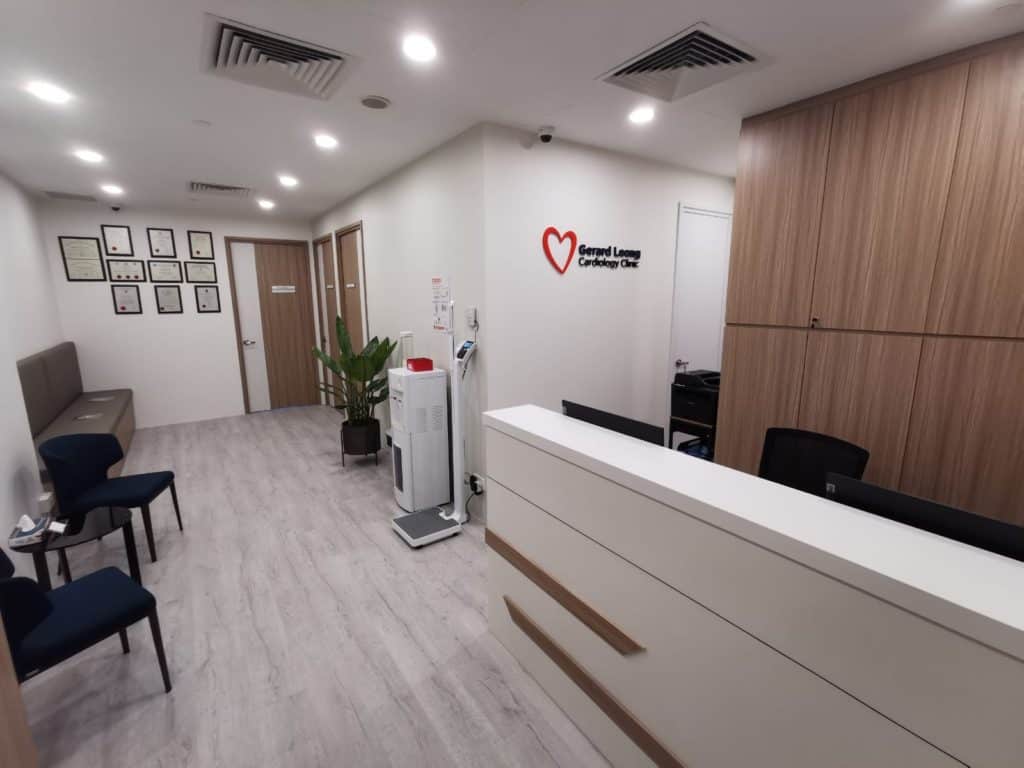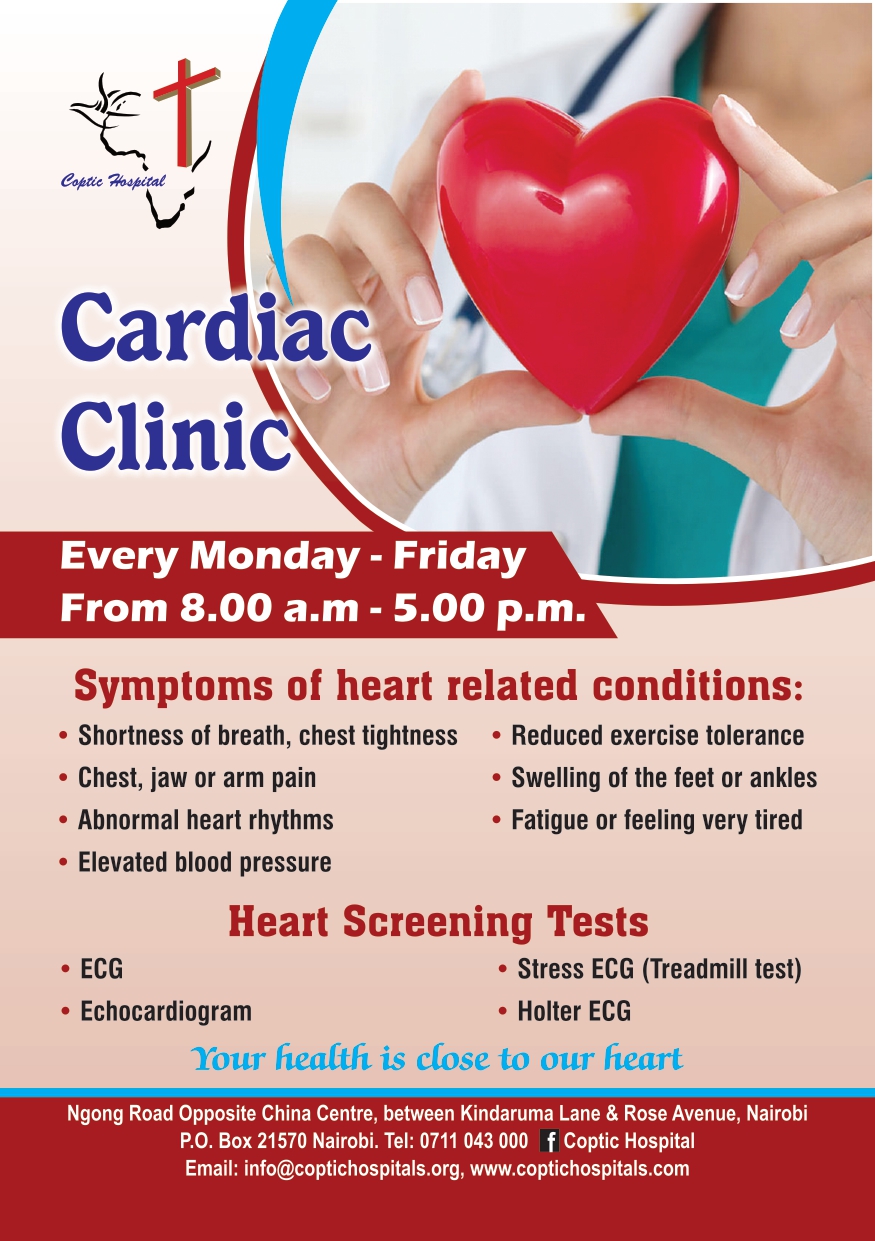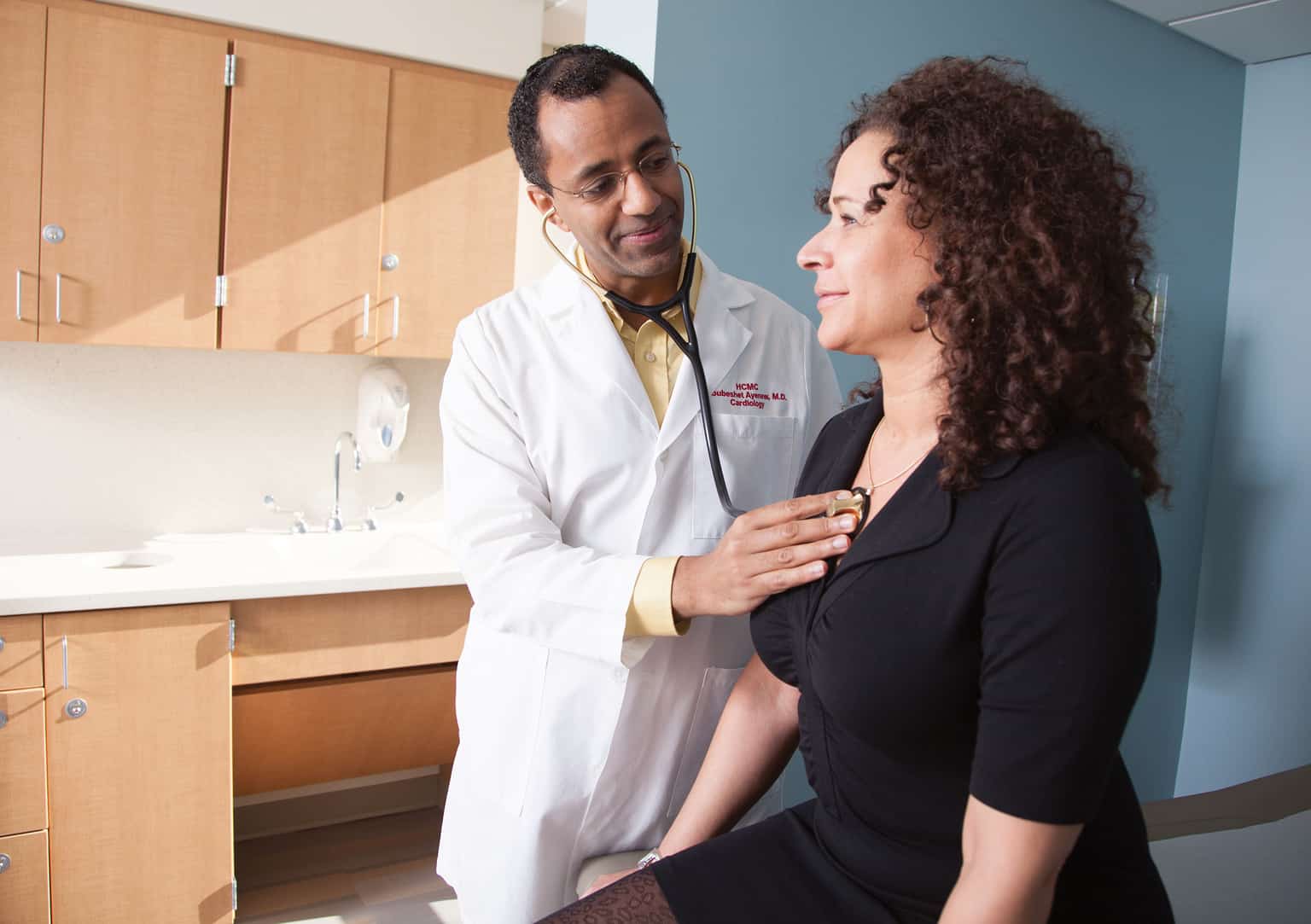When it comes to cardiovascular health, finding the right specialist can significantly impact patient outcomes. This guide, “How to Find the Best Cardiologists and Heart Clinics in Europe,” offers healthcare professionals key insights to navigate the complex landscape of cardiac care. Readers will explore essential factors for choosing a cardiologist in Europe, discover valuable strategies for finding cardiologists near me in Europe, and learn how to evaluate top cardiologists in Europe based on their experience and credentials. Additionally, the post highlights how to pinpoint the best heart clinics in Europe and understand what sets these top heart clinics in Europe apart. Equipped with practical tips and valuable resources, healthcare professionals will be better prepared to recommend the most qualified heart specialists in Europe, ensuring their patients receive the highest quality of care available.
Understanding Cardiovascular Health and Its Importance
Cardiovascular health is a vital component of overall well-being, encompassing the optimal functioning of the heart and blood vessels. It plays a paramount role in preventing diseases such as heart attacks, strokes, and chronic conditions that can severely impact a person’s quality of life. Understanding cardiovascular health and its significance is essential, especially for healthcare professionals seeking to provide the best care for their patients.
The Significance of Cardiovascular Health
The World Health Organization (WHO) identifies cardiovascular diseases (CVDs) as one of the leading causes of death worldwide. The staggering statistics underscore an urgent need for preventative care, timely interventions, and ongoing management of cardiovascular conditions. Here are the major reasons why maintaining cardiovascular health is critical:
- Prevention of Heart Diseases: Lifestyle factors—such as poor diet, lack of exercise, and smoking—are key contributors to heart diseases. Awareness of these can guide healthcare professionals in promoting healthier lifestyle choices among patients.
- Quality of Life Improvement: Individuals with healthy cardiovascular systems experience increased energy levels, more effective physical responses, and improved mental well-being. This translates to a higher quality of life, making it imperative for medical professionals to encourage regular check-ups and heart-healthy habits.
- Reduction of Healthcare Costs: Addressing cardiovascular health proactively can significantly reduce the financial burden associated with treating advanced heart diseases. Preventative care promotes early detection and management, translating into lower costs for both patients and health systems.
Key Indicators of Cardiovascular Health
Healthcare professionals should pay attention to several key indicators of cardiovascular health. Monitoring these factors can help in early detection and intervention, leading to better patient outcomes:
| Indicator | Importance |
|---|---|
| Blood Pressure | Elevated blood pressure can lead to serious health issues, including heart attack and stroke. Regular monitoring is vital. |
| Cholesterol Levels | High levels of LDL (bad cholesterol) can cause plaque buildup in arteries, leading to blockages. Keeping cholesterol in check is essential. |
| Body Mass Index (BMI) | A high BMI often correlates with an increased risk for heart disease. Educating patients about healthy weight management is crucial. |
| Physical Activity | Regular exercise strengthens the heart and improves circulation. Healthcare providers should motivate patients to incorporate physical activity into their routines. |
| Smoking Status | Tobacco use is a significant risk factor for cardiovascular disease. Counseling patients on smoking cessation can vastly improve heart health. |
Conclusion
Understanding the intricacies of cardiovascular health is indispensable for healthcare professionals aiming to quench their patients’ thirst for knowledge about heart health maintenance. Furthermore, emphasizing prevention and early intervention can lead to a nation of patients equipped to face heart health challenges. By familiarizing themselves with the common indicators of cardiovascular health, healthcare providers can better assess, educate, and empower their patients to lead heart-healthy lives. This foundational knowledge is a stepping stone in finding the best cardiologists in Europe and top heart clinics in Europe, ensuring that superior cardiovascular care is within reach.

Key Factors to Consider When Choosing a Cardiologist
When it comes to selecting a cardiologist, there are multiple factors that healthcare professionals should take into account to ensure optimal cardiovascular health for their patients. Finding the right expert goes beyond simple qualifications; it involves a comprehensive evaluation of various elements that reflect both medical expertise and personal compatibility. Here are several key considerations to keep in mind during this process.
1. Credentials and Specializations
The cardiologist’s educational background and specialized training hold significant weight. It’s vital to verify:
- Board Certification: Ensure that the cardiologist is board-certified in cardiology. This certification reflects that they have completed extensive training and passed rigorous exams.
- Fellowships: Additional fellowships in subspecialties such as interventional cardiology or electrophysiology can indicate a deeper level of expertise in specific areas.
2. Experience and Patient Outcomes
Experience often correlates with competence. When assessing potential cardiologists, consider the following:
- Years in Practice: A cardiologist with years of hands-on experience often brings a wealth of practical knowledge and skill.
- Patient Outcomes: Inquire about the success rates for various procedures. High success rates can sometimes indicate higher proficiency and better care.
3. Hospital Affiliation
The quality of the hospital where the cardiologist practices can significantly affect patient outcomes. Key points to review include:
- Accreditations: The hospital should be accredited by reputable organizations, ensuring that it meets stringent quality standards.
- Technology and Facilities: State-of-the-art technology and facilities can enhance diagnosis and treatment options.
4. Communication Style
A cardiologist may be highly qualified but may not be the right fit for every patient. Key communication aspects to consider include:
- Approachability: The cardiologist should be willing to answer questions and explain conditions in a way that patients can understand.
- Personalized Care: Look for a cardiologist who demonstrates a commitment to personalized treatment, taking into account the specific needs and preferences of each patient.
5. Location and Accessibility
Convenience is a critical consideration for both patients and healthcare professionals. Factors to evaluate:
- Proximity: Finding cardiologists near me in Europe that are easily accessible can reduce travel stress for patients, especially those with severe conditions.
- Appointment Availability: Check how quickly a cardiologist can accommodate new patients. A long wait time may indicate high demand but could also delay essential care.
6. Insurance and Cost Considerations
Understanding the financial implications is crucial for both patients and referring professionals:
- Insurance Acceptance: Confirm that the cardiologist accepts the patient’s insurance plan. This can greatly affect out-of-pocket costs.
- Payment Options: Knowing about various payment options can ease financial burdens and facilitate timely care.
7. Cultural Competence
In Europe, diversity is rich within patient populations, so finding a cardiologist who understands cultural values and health behaviors is essential:
- Language Proficiency: A cardiologist fluent in the patient’s preferred language can improve communication and comfort during consultations.
- Cultural Sensitivity: A culturally competent cardiologist can better address patients’ concerns aligned with their values and beliefs.
| Key Factors | Considerations |
|---|---|
| Credentials and Specializations | Board certification, fellowships |
| Experience and Patient Outcomes | Years in practice, success rates |
| Hospital Affiliation | Accreditations, technology, facilities |
| Communication Style | Approachability, personalized care |
| Location and Accessibility | Proximity, appointment availability |
| Insurance and Cost Considerations | Insurance acceptance, payment options |
| Cultural Competence | Language proficiency, cultural sensitivity |
By thoughtfully considering these factors, healthcare professionals can significantly contribute to their patients’ journey towards better cardiovascular health. How to choose a cardiologist in Europe becomes an informed decision, leading to successful patient outcomes and enhanced quality of care. This careful selection process is especially essential given the pressing need for high-quality cardiology services in today’s healthcare landscape.
Researching the Best Cardiologists in Europe
When embarking on the journey of Researching the Best Cardiologists in Europe, healthcare professionals need to adopt a systematic approach. A thorough investigation not only ensures the selection of qualified experts in cardiovascular health but also guarantees access to state-of-the-art facilities. Below are key techniques and resources that can aid in the research process.
Utilizing Online Medical Directories
One of the first steps in finding suitable healthcare providers is leveraging online medical directories. Platforms like Healthgrades or RateMDs allow users to filter results based on specialties and geographical locations. Here’s how to use these platforms effectively:
- Search Filters: Input specific criteria such as “cardiologist” and “Europe” to narrow the search. Many of these directories allow users to refine further by factors like location, hospital affiliation, and patient ratings.
- Comparative Analysis: By reviewing several cardiologists in the region, professionals can create a shortlist based on crucial metrics, including years of experience, areas of specialization, and accepted insurance plans.
Checking Hospital Affiliations
The affiliation with prestigious hospitals often reflects the credibility of a cardiologist. It is essential to consider:
- Reputation of the Hospital: Research the best heart clinics in Europe, as a renowned hospital typically attracts top talent. Facilities like the Mount Sinai Hospital in London or the Heart Centre in Berlin are recognized worldwide.
- Network Strength: Institutions that have collaborations with leading universities and clinical research organizations usually signify a higher standard of care and innovation.
Engaging Professional Networks
Networking with other healthcare professionals can offer insightful perspectives on Finding Cardiologists in Europe. When healthcare workers discuss referrals, they should focus on:
- Peer Recommendations: Colleagues who have firsthand experience with particular cardiologists can provide invaluable insights about the care quality and patient outcomes.
- Specialized Forums and Communities: Exploring forums such as ResearchGate or professional associations like the European Society of Cardiology can yield expert opinions and recommendations from other professionals in the field.
Evaluating Online Reviews and Ratings
Patient reviews can be a double-edged sword; they provide a glimpse into the patient experience. When analyzing these reviews, professionals should look for:
- Consistency in Feedback: Pay attention to recurring themes in the reviews. A cardiologist with repeatedly positive feedback on interpersonal skills and treatment outcomes is likely a reliable choice.
- Specific Experiences: Ratings that mention particular procedures, recovery times, or follow-up care can be indicative of a cardiologist’s specialty and patient approach.
Understanding the Technology and Techniques Used
Modern cardiology heavily relies on innovative technology. Investigating the types of technologies employed by practitioners can highlight their level of expertise. When researching:
- Emerging Treatments: Are they employing the latest techniques in coronary artery disease treatment, or do they specialize in minimally invasive procedures?
- Technological Integration: Practices that utilize advanced diagnostic tools such as echocardiography or cardiac MRI can enhance patient outcomes and showcase the cardiologist’s commitment to comprehensive care.
In summary, Researching the Best Cardiologists in Europe involves a multifaceted approach. Using a combination of online resources, peer recommendations, patient testimonials, and technology evaluation provides healthcare professionals with a robust means to identify the top cardiologists. This strategic approach ultimately supports better patient outcomes and enhances the overall quality of cardiovascular care in Europe.
Evaluating Credentials and Experience of Heart Specialists
When it comes to choosing a cardiologist, the first step is understanding the importance of evaluating their credentials and experience. The heart plays a crucial role in overall health, making it vital to consult with a qualified specialist. To identify the best cardiologists in Europe, it is essential to delve into their educational background, training, and professional experience, ensuring they meet the highest standards in cardiovascular care. Below are several key criteria to consider:
1. Educational Background
- Medical School: Verify the institution where the cardiologist earned their medical degree. Prestigious medical schools often have rigorous training programs.
- Residency Training: Look for completion of a residency in cardiology from accredited and recognized programs, ensuring they have extensive exposure to various cardiovascular conditions.
2. Board Certification
- Certification Status: Confirm if the cardiologist is board-certified in cardiology. Board certification indicates that the physician has passed rigorous examinations and meets specific educational and professional milestones.
- Sub-Specialization: Some heart specialists may have additional certifications in sub-specialties such as interventional cardiology, electrophysiology, or heart failure. This added expertise often leads to better treatment options tailored to individual patient needs.
3. Clinical Experience
- Years of Practice: Consider the length of time the cardiologist has been practicing. A specialist with several years of experience typically encounters a wider range of cases, enhancing their clinical judgement.
- Patient Volume: Research the number of patients treated. Cardiologists who regularly manage cardiovascular issues are often more adept at identifying and developing effective treatment plans.
4. Professional Affiliations
- Membership in Reputable Organizations: Check if the cardiologist is a member of established professional organizations such as the European Society of Cardiology (ESC) or similar associations. Memberships often reflect a commitment to ongoing education and adherence to the latest medical standards.
Comparison Table: Evaluating Cardiologist Credentials
| Criteria | What to Look For |
|---|---|
| Educational Background | Graduated from reputable medical schools; Completed cardiology residency from accredited programs |
| Certification | Board-certified in cardiology; Additional certifications in sub-specialties |
| Clinical Experience | Extensive years of practice; High volume of patients treated |
| Professional Affiliations | Member of recognized cardiac organizations |
5. Assessing Research and Publications
- Research Involvement: Inquire about the cardiologist’s involvement in clinical research. Specialists engaged in research may have access to cutting-edge treatments and emerging therapies.
- Publications and Presentations: Look for publications in peer-reviewed journals or presentations at medical conferences. This showcases the physician’s expertise and contributions to advancing cardiovascular medicine.
6. Continuing Education
- Ongoing Training: Verify whether the cardiologist participates in continuing medical education (CME). Staying updated on advancements ensures that they are well-equipped to provide the latest treatment options.
Evaluating credentials and experience is a vital step in finding cardiologists in Europe. A well-qualified cardiologist not only ensures effective medical management but also instills confidence in their patients. A focus on these aspects acts as a strong foundation in the journey towards heart health.

Top Heart Clinics in Europe: What Sets Them Apart
When searching for the best heart clinics in Europe, understanding what distinguishes these facilities is crucial for healthcare professionals who seek the highest standards for their patients. Various factors contribute to the reputation and success of top heart clinics, which can significantly influence patient outcomes.
High Standards of Care
European heart clinics are renowned for adhering to stringent quality standards, ensuring they provide exceptional cardiovascular care. Here are some key attributes that mainly set them apart:
- Accreditations: Many top clinics possess certifications from reputable national and international bodies such as the European Society of Cardiology (ESC) and the Joint Commission International (JCI). These accreditations reflect their commitment to superior quality and safety measures.
- State-of-the-Art Technology: Leading clinics often utilize the latest advancements in medical technology, including advanced imaging techniques, minimally invasive surgical procedures, and innovative treatment options. This allows them to perform complex diagnoses and treatments with enhanced precision.
- Specialized Programs: Elite heart clinics frequently offer specialized programs focusing on specific areas of cardiology, such as interventional cardiology, electrophysiology, and heart failure management. These programs enable clinics to provide personalized care tailored to individual patient needs.
Multidisciplinary Approach
Another major factor that sets apart top heart clinics in Europe is their multidisciplinary approach to heart health. Collaboration among various specialists leads to comprehensive care plans:
- Cardiologists: Experts specializing in diagnosing and treating heart diseases.
- Surgeons: Highly skilled professionals performing cardiac surgery.
- Nurses: Trained in specialized cardiac care and patient management.
- Rehabilitation Specialists: Focus on post-treatment recovery and lifestyle counseling.
The collaborative efforts of these professionals result in better patient outcomes. Healthcare providers should seek out clinics that emphasize teamwork in patient care.
Patient-Centric Environment
Top heart clinics prioritize patient experience by creating an environment centered around comfort and understanding:
- Patient Education: Clinics that excel in patient education ensure patients and their families are well-informed about treatment options, recovery processes, and preventive healthcare strategies.
- Support Services: Many leading clinics provide psychological support services to address the emotional and mental health needs of patients undergoing treatment. This holistic approach is beneficial for overall well-being.
Metrics and Outcomes
When evaluating the best cardiologists in Europe or their associated clinics, it is essential to examine outcome metrics, such as:
| Metric | Importance |
|---|---|
| Patient Recovery Rates | High recovery rates are an indicator of effective treatment practices. |
| Complication Rates | Lower complication rates reflect the clinic’s technical skill and patient management. |
| Patient Satisfaction Scores | Positive feedback from patients indicates a compassionate and effective care structure. |
By considering these metrics, healthcare professionals can make informed decisions regarding referrals and partnerships.
Recognition and Research Contributions
Lastly, the standing of a heart clinic in Europe can also be gauged by its involvement in research and clinical trials. Many top facilities are at the forefront of cardiovascular research, contributing to new treatments and therapies. This involvement often correlates with a more extensive understanding of innovative techniques and access to cutting-edge care options.
In summary, when evaluating top heart clinics in Europe, healthcare professionals should consider the clinic’s adherence to high standards of care, their multidisciplinary approach, patient-centric practices, and significant contributions to research and metrics. This thorough understanding aids in ensuring the best possible referral or treatment options for cardiovascular conditions in Europe.
How to Find Cardiologists Near Me in Europe
Finding the right healthcare provider can be daunting, especially when searching for specialized care, such as cardiology. For professionals in the healthcare field seeking Best Cardiologists in Europe, or simply looking for finding cardiologists near me in Europe, the process can be broken down into manageable steps. Below are crucial strategies to streamline the search for top cardiologists and heart clinics.
Leverage Online Directories
One of the most straightforward approaches is utilizing online directories. Websites that specialize in healthcare professionals often allow users to filter their searches by specialty, location, and even patient reviews. Some reputable directories include:
- Healthgrades
- Zocdoc
- RateMDs
These platforms typically provide:
- Provider profiles: Many profiles include educational background, years of practice, and areas of expertise.
- Patient reviews: Read through testimonials for insights about their experiences.
- Contact information: Easily access office hours and contact details to set up appointments.
Using these services will enable healthcare professionals to broaden their scope and effectively locate the best heart clinics in Europe.
Consult Local Medical Societies
Local medical societies and associations often maintain updated lists of board-certified cardiologists within specific areas. Examples include:
- European Society of Cardiology
- National Heart Foundation
Contacting these organizations can yield referrals to qualified cardiologists. Additionally, they can provide information about current research, clinical trials, and ongoing education on cardiovascular health.
Use Social Media and Professional Networking Sites
Popular social platforms and professional networking sites, such as LinkedIn, have groups and forums dedicated to cardiology and healthcare. Engaging in discussions, asking questions, and seeking recommendations in these groups can lead to valuable insights. Notable examples include:
- LinkedIn Groups for healthcare professionals
- Facebook pages for local health networks
Participating in these communities enables healthcare professionals to exchange knowledge and tap into real experiences regarding local heart specialists in Europe.
Conduct Local Searches
Utilizing search engines effectively can yield geographical insights about Top cardiologists in Europe. Incorporating location-specific keywords into your search (e.g., “cardiologists in Berlin” or “heart clinics in London”) increases the chances of finding suitable options nearby. This method helps in pinpointing professionals and facilities close to your vicinity for convenience and expediency.
Evaluate Telemedicine Options
Especially post-pandemic, telemedicine has surged, allowing patients to connect with cardiology specialists virtually. Utilizing telehealth platforms can be incredibly beneficial for professionals seeking consultations or second opinions from distinguished cardiologists located in different European countries.
- Check if popular telehealth services offer cardiology specialties.
- Look for secure communications and privacy.
Such options not only provide broader access to the top heart clinics in Europe but also accommodate professionals’ busy schedules.
Patient Referral Programs
Lastly, for healthcare professionals already engaged in their local health systems, don’t hesitate to ask colleagues for recommendations. Referrals often lead to discovering hidden gems among professionals who may not have a significant online presence. Engage with trusted coworkers, mentors, or specialists to gather insights about where to find the top cardiologists effectively.
“Engaging with trusted colleagues can illuminate options for finding the best care.”
In summary, navigating the process of finding cardiologists near me in Europe is multifaceted and can be achieved through comprehensive research, utilizing professional networks, and leveraging online resources. By following these guidelines, healthcare professionals can access a robust network of specialized care tailored to their unique needs.
Utilizing Online Resources for Cardiologist Listings
In the digital age, the process of finding cardiologists in Europe has become significantly streamlined, thanks largely to the proliferation of online resources. Healthcare professionals looking to connect with top-tier cardiologists can leverage various platforms to facilitate their search. Here are several effective online resources that can be utilized for locating the best cardiologists in Europe and top heart clinics in Europe:
1. Medical Directories and Listings
One of the most reliable starting points is the use of medical directories. These platforms typically list physicians by specialty and geographical location, providing essential details such as contact information, practice area focus, and patient ratings. Some prominent directories include:
- Healthgrades: A comprehensive site that allows users to search by specialty and location. It often includes patient reviews, making it easier to gauge a cardiologist’s reputation.
- Zocdoc: This platform not only lists cardiologists but also enables users to book appointments directly.
- RealSelf: Primarily known for cosmetic procedures, this site also has a section for general practitioners and specialists, including cardiologists.
2. Hospital Websites
Many hospitals and clinics in Europe have dedicated pages where they spotlight their medical staff. These pages often provide:
- Profiles of Cardiologists: Including educational background, specializations, and professional achievements.
- Research Publications: Some cardiologists may have published work that can provide insights into their expertise.
- Consultation Options: Details about how to schedule appointments or inquire about services.
3. Professional Medical Associations
Organizations like the European Society of Cardiology (ESC) maintain databases where healthcare professionals can search for cardiologists by area, subspecialty, and credentials. Membership in such organizations often indicates a commitment to staying current with medical advancements.
4. Social Media Networks
Utilizing professional social networks, such as LinkedIn, can also be beneficial. By searching for specific cardiologists or following relevant groups, healthcare professionals can gain insights into peer recommendations, shared articles, and other valuable resources.
5. Review and Rating Websites
Patient review websites like RateMDs or Vitals aggregate feedback from patients about their experiences with different healthcare providers. Key considerations include:
- Overall Ratings: A high cumulative score can reflect a physician’s reputation.
- Specific Comments: Detailed patient experiences often highlight strengths and weaknesses, helping other professionals foresee potential issues.
Table: Comparison of Online Resources
| Resource Type | Examples | Key Features |
|---|---|---|
| Medical Directories | Healthgrades, Zocdoc | Listings by specialty, patient reviews |
| Hospital Websites | Clinic Websites | Cardiologist profiles, research publications |
| Professional Associations | ESC, ACC | Credentialing, trusted databases |
| Social Media Networks | Networking, peer reviews | |
| Review Websites | RateMDs, Vitals | Patient feedback, overall ratings |
These resources collectively serve as a roadmap for finding cardiologists near me in Europe. By exercising due diligence in utilizing these online options, healthcare professionals can effectively identify and connect with the best heart clinics in Europe. Ultimately, informed choices regarding cardiologists not only enhance individual professional networks but also contribute positively to patient outcomes.

Patient Reviews and Testimonials: A Key Resource
When searching for the best cardiologists in Europe, one crucial aspect that healthcare professionals must consider is the significance of patient reviews and testimonials. These sources of information provide invaluable insights into the experiences of previous patients, helping to inform decision-making processes related to cardiovascular care. Understanding how to interpret and utilize these reviews can lead to better choices and ultimately result in improved patient outcomes.
Importance of Patient Feedback
Patient feedback serves various essential purposes:
- Transparency: Patient reviews offer transparency into the quality of care provided by cardiologists and heart clinics, revealing how effectively they communicate, diagnose, and treat heart conditions.
- Assessment of Interpersonal Skills: Studies show that a cardiologist’s bedside manner greatly impacts patient satisfaction. Reviews often highlight the ability of heart specialists to empathize with patients, listen attentively, and clearly explain complex medical concepts.
- Understanding Patient Outcomes: Reviews typically discuss the results of specific treatments and procedures. This information can help healthcare professionals gauge the effectiveness of various interventions available at different clinics.
How to Analyze Patient Reviews
To extract the most relevant and actionable insights from patient testimonials, it is essential to adopt a systematic approach:
- Look for Patterns:
- Focus on recurring themes in reviews. For instance, if multiple patients mention long waiting times or exceptional follow-up care, these points can guide expectations.
- Evaluate Detailed Accounts:
- Favor reviews that provide in-depth descriptions of experiences rather than vague statements. Detailed narratives often offer a clearer understanding of the cardiologist’s expertise.
- Assess the Rating Scale:
- Most review platforms use a star-rating system combined with written feedback. Pay attention to both the overall rating and the qualitative commentary, as they provide a comprehensive view of the clinician’s care quality.
- Cross-check Information:
- Compare patient reviews across different platforms to ensure accuracy and consistency. For instance, a cardiologist highly praised on one site may have contrasting feedback on another.
Platforms for Patient Reviews
Several reliable platforms serve as resources for patients to share their experiences. Some notable ones include:
| Review Platform | Key Features |
|---|---|
| Healthgrades | Comprehensive information on doctors and clinics, including ratings and detailed reviews. |
| Zocdoc | Allows patients to book appointments and read reviews based on specific specialties, such as cardiology. |
| Vitals | Offers insights into various healthcare providers alongside patient ratings and reviews. |
| RateMDs | Focuses on providing patients with the ability to rate their doctors and share experiences across different facets of care. |
The Role of Testimonials in Research
When evaluating top heart clinics in Europe, understanding patient testimonials can also shed light on hospital-specific factors:
- Care Coordination: Reviews may describe how well different departments within a clinic work together, a crucial factor in managing complex cardiovascular cases.
- Facility Quality: Patients often comment on the cleanliness and overall environment of the clinic. A comfortable patient experience is essential for effective care.
By placing emphasis on patient feedback throughout the selection process, healthcare professionals can make informed decisions regarding finding cardiologists in Europe who are adept not only in their medical knowledge but also in their approaches to patient care.
Networking with Healthcare Professionals for Recommendations
When seeking the best cardiologists in Europe or the top heart clinics in Europe, networking with other healthcare professionals can be an invaluable strategy. This collaborative approach not only enriches the search process but also ensures that recommendations are based on firsthand experiences and specialized knowledge within the healthcare field.
Why Networking Matters
Healthcare professionals often hold a wealth of information regarding the strengths and weaknesses of their peers. By leveraging these relationships, one can gather reputable insights that may not be readily available through public directories or general online resources. Here are several reasons why networking is essential:
- Expert Insights: Colleagues may provide valuable feedback about cardiologists they’ve worked with, including their clinical skills, bedside manner, and follow-up care.
- Specialization Knowledge: Some cardiologists specialize in specific areas, such as interventional cardiology or heart failure. Networking allows healthcare professionals to identify specialists based on their unique needs or interests.
- Local Connections: Networking can lead to recommendations for finding cardiologists near me in Europe, making it easier to locate accessible, high-quality care.
Networking Strategies
To effectively network for finding cardiologists in Europe, consider these strategies:
- Professional Associations: Joining organizations such as the European Society of Cardiology (ESC) can connect healthcare providers with peers and experts in the field. Attending conferences and seminars provides an excellent platform for building connections and exchanging knowledge about heart specialists.
- Social Media and Online Platforms: Utilizing platforms like LinkedIn can help professionals connect with each other. Groups focused on cardiovascular health can serve as forums for discussion, allowing members to share recommendations and referrals.
- Peer-to-Peer Meetings: Arranging informal meetings or lunches with colleagues can facilitate open discussions about their experiences with local cardiologists. These personal interactions often yield more candid insights than public reviews.
- Continuing Medical Education (CME): Participating in CME events provides opportunities for networking. Engaging with speakers and panelists can lead to recommendations based on their professional networks.
- Case Discussions: Engaging in case discussions can often lead to queries regarding the best cardiologists to refer patients. Colleagues may have direct experience or know of trusted specialists they can recommend.
The Role of Trust
“Deciding on a cardiologist is a significant step for any healthcare provider. Gaining insights from trusted colleagues helps ensure that you are making an informed choice based on reliability and expertise.”
When networking, it is crucial to foster relationships based on trust and mutual respect. Colleagues are often more willing to share their insights and recommendations when they feel a sense of camaraderie and support within the healthcare community.
Summary of Networking Benefits
| Benefits of Networking for Cardiologist Referrals | Potential Outcomes |
|---|---|
| Access to trusted recommendations | Increased likelihood of finding quality care |
| Insight into specialized cardiology practices | More targeted care options |
| Opportunities for collaboration and shared learning | Enrichment of professional knowledge |
In summary, when finding heart specialists in Europe, networking with fellow healthcare professionals offers a distinct advantage. Leveraging their firsthand experiences, insights, and established reputations will enhance the search for the best cardiologists and heart clinics in Europe.
Making the Final Choice: Scheduling Consultations
When it comes to securing cardiovascular health, the importance of selecting the right cardiologist and heart clinic in Europe cannot be overstated. After gathering ample information regarding potential specialists and facilities, the next pivotal step is scheduling consultations. This phase not only allows healthcare professionals to assess their options but also provides the patients with an opportunity to make an informed choice regarding their cardiovascular care. The following guide outlines essential steps to effectively navigate this process.
Steps to Schedule Consultations
- Prioritize Your List: Compile a short list of potential cardiologists and heart clinics based on the key factors previously discussed such as credentials, experience, and specialty areas.
- Determine Availability: Inquire about the availability of the desired cardiologist or clinic by checking their website or calling their office. Understand the waiting time for appointments, as this could be indicative of their workload and patient demand.
- Contacting the Clinic: Reach out via phone or their online booking system. Make sure to articulate your specific needs and mention whether you are looking to discuss ongoing cardiovascular issues or preventive measures.
- Ask Relevant Questions: During your call or online inquiry, it’s important to obtain information on:
- Appointment durations
- Insurance acceptance policies
- Preliminary documentation required
- Cancellation and rescheduling policies
- Prepare for Your Visit: Once the consultation is scheduled, prepare a list of questions or concerns you might want to address. This could include inquiries about treatment options, management of existing conditions, or lifestyle changes vital for heart health.
Things to Consider During the Consultation
- Comfort Level: It’s essential to gauge whether the cardiologist creates a comfortable atmosphere where patients feel valued and heard. The rapport established during this meeting can significantly impact the quality of care.
- Diagnostic Tools and Techniques: Evaluate the clinic’s approach towards diagnostics. Are modern technologies and evidenced-based practices employed? Understanding the tools available can give insight into the level of care patients might expect.
- Follow-Up Care: Discuss what kind of follow-up care is available. Adequate follow-up is critical in managing cardiac health, and understanding this can help gauge the overall care approach of the clinic.
- Communication Style: Pay attention to how well the cardiologist communicates complex heart health information. Effective communication can make a significant difference in treatment choices and patient adherence to care plans.
Making Your Choice
After attending the consultations, healthcare professionals should rate each experience based on:
- Professionalism and staff support
- The extent of patient education offered
- Clinic facilities and location convenience
- Overall satisfaction during the visit
Using this structured approach can streamline the final choice regarding the best cardiologists and heart clinics in Europe. By actively engaging with specialists and considering multiple factors, patients can feel confident that they have made an informed decision when it comes to their cardiovascular health.
To enhance the selection process, keeping a table might be particularly helpful:
| Factors to Evaluate | Criteria | Notes |
|---|---|---|
| Availability | Date & Time Options | |
| **Credentials and Experience | Board Certification & Specialties | |
| Communication | Clarity and Empathy | |
| Follow-Up Care | Schedule of follow-up appointments | |
| Patient Resources | Access to educational materials |
This systematic approach is essential in finding cardiologists in Europe that align with patient needs and preferences. Ultimately, the goal should focus on ensuring the best possible cardiovascular care to enhance long-term health and wellness outcomes.

Frequently Asked Questions
What should I consider when searching for a cardiologist in Europe?
When searching for a cardiologist in Europe, individuals should consider several critical factors. Firstly, the qualifications and experience of the cardiologist are paramount; checking their credentials and any specializations can provide assurance of their expertise. Additionally, one should look into the clinic’s reputation, patient reviews, and success rates with specific treatments. Accessibility, including location and availability for appointments, as well as the doctor’s communication style and willingness to address concerns, are also important. Lastly, it may be beneficial to consider the clinic’s advanced technologies and treatment options available.
How can I verify the credentials of a cardiologist in Europe?
Verifying the credentials of a cardiologist in Europe involves several steps. Patients can start by checking their medical qualifications, which typically include medical school training and specialized cardiology training. Websites of national medical boards or associations often provide information on licensed practitioners. Additionally, certifications from recognized cardiology organizations can be confirmed. Patients may also seek feedback from former patients or read reviews on healthcare platforms to understand the cardiologist’s reputation. Lastly, a direct conversation with the cardiologist during an initial consultation can help gauge their expertise and competence.
What are the common procedures performed by cardiologists in Europe?
Cardiologists in Europe are trained to perform a wide range of procedures essential to heart health. Commonly performed procedures include echocardiograms, stress tests, and catheterizations, which help diagnose various heart conditions. They may also conduct angioplasty and stent placements to open blocked arteries. In addition, they are involved in managing long-term treatments for conditions like arrhythmias, heart failure, and other cardiovascular diseases. Advanced cardiovascular interventions, including electrophysiology studies and heart valve surgeries, are also increasingly available in many leading clinics across Europe, providing comprehensive care.
How can I find a heart clinic that accepts my health insurance in Europe?
Finding a heart clinic that accepts specific health insurance in Europe involves a few deliberate steps. Patients should begin by contacting their insurance provider to obtain a list of affiliated clinics and cardiologists covered under their plan. Most health insurance companies provide online directories or customer service assistance. Additionally, prospective patients can directly inquire with clinics regarding their accepted health plans during initial communications. It is also advisable to confirm the eligibility of various treatments and procedures under the insurance to avoid unexpected costs in the future.



